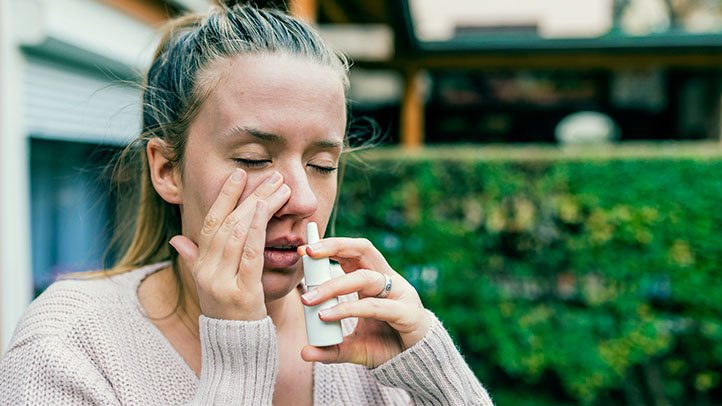What is allergic rhinitis?
Allergic rhinitis (also known as hay fever) is a form of nose inflammation that occurs when your immune system overreacts to airborne allergens. The onset of symptoms of nasal allergies frequently occurs within minutes of exposure to allergens, and can impair sleep and the ability to work. Some people may experience symptoms only during specific periods of the year, sometimes as a result of exposure to pollen. Many people with nasal allergies also have asthma, allergic conjunctivitis or atopic dermatitis.
According to the American Academy of Allergy, Asthma & Immunology (AAAAI), nearly 8 per cent of adults in the United States experience any form of allergic rhinitis.
What are some common allergens that cause nasal allergies?
Common allergens include tree and flower pollens, dust mites, feathers, animal dander, and molds.
One integral component for the treatment of allergy, nasal congestion is the use of nasal spray. Nasal sprays, available in various formulations, play a pivotal role in providing targeted relief by reducing inflammation and congestion in the nasal passages. These sprays often contain corticosteroids, antihistamines, or decongestants, addressing different facets of allergic reactions. By incorporating a nasal spray into the treatment plan outlined in the informative article, individuals can manage symptoms more comprehensively and experience the soothing benefits of direct nasal application.
What causes nasal allergies?
When your body comes into contact with an allergen, it releases histamine which is a natural chemical that protects your body from the allergens. Histamine causes nasal allergies and its symptoms which include a runny nose, sneezing, and itchy eyes.
What are the symptoms of nasal allergies?
Common symptoms of nasal allergies include:
- Sneezing
- Runny nose
- Nasal congestion
- Itching of the nose
- Watery eyes
- Sore throat
- Frequent headaches
- Extreme tiredness
How are nasal allergies treated?
Treatment for nasal allergies include medications (antihistamines, decongestants, nasal sprays), immunotherapies, and also home remedies (using a dehumidifier for example). Contact your primary care physician before trying any treatment measures.
Treatment at Manhattan Medical Arts, Chelsea, NYC.
Primary care physicians at Manhattan Medical Arts evaluate and treat patients with allergies including rhinitis, sinusitis, dermatitis, and environmental allergies. If you or loved one is suffering from nasal allergies, contact us at 1-646-454-9000.
Top of Form
We believe in providing accessible, cost-effective and efficient care that meets the expectations of our clients and strive to maintain the highest standards of safe and quality health care in all our facilities, for all our patients.
